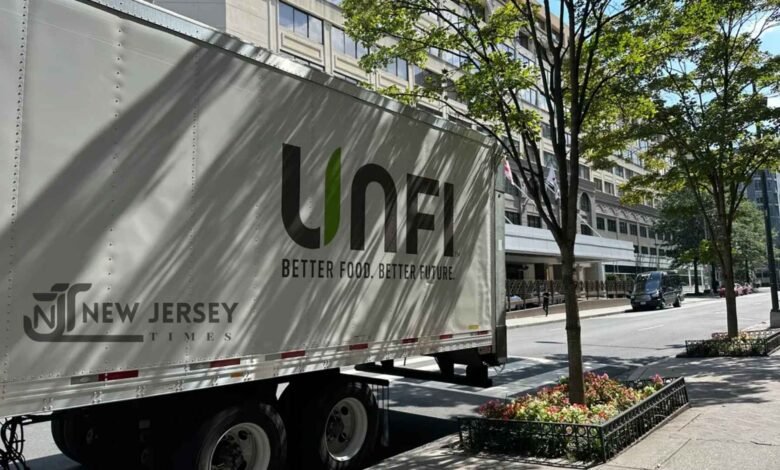
New York, June 10: What began as a few empty dairy shelves at Whole Foods over the weekend has unfolded into a much broader disruption, all traced back to a cyberattack on one of the biggest names in food distribution — United Natural Foods Inc., better known as UNFI.
The company confirmed that it discovered unauthorized access to its systems on June 5, prompting an immediate shutdown of parts of its digital infrastructure. That decision, made to limit further damage, has had a knock-on effect: delayed shipments, inventory shortfalls, and a growing logistical headache for grocery chains across North America.
Distributors Under Fire As Cyber Threats Spread
UNFI serves as the primary distributor for Whole Foods and supplies over 30,000 retail outlets, ranging from small co-ops to national chains like Target and Kroger. With so many businesses depending on its systems for order processing and delivery scheduling, the fallout was immediate.
According to the company’s statement to the U.S. Securities and Exchange Commission, operations have been “temporarily disrupted,” though teams are working to bring systems back online using contingency protocols. Federal authorities and third-party cybersecurity investigators have been brought in to assess the breach. So far, no public statement has been made about the nature of the attack or whether a ransom was involved.
While UNFI is known for operating behind the scenes, its absence is being felt right at the checkout counter. In many Whole Foods stores, shoppers were greeted by sparse shelves, particularly in refrigerated sections. Staff at several locations posted notices citing supply issues from a distribution partner.
Why This Matters To Shoppers And Stores Alike
UNFI isn’t just another vendor in the grocery business. It’s a vital artery in the supply chain, especially for natural and organic products. Its long-standing contract with Whole Foods was renewed just last year and extended through 2032, affirming its position as the store’s main supplier.
In its most recent financial disclosures, UNFI reported over $31 billion in annual revenue. Nearly a quarter of that comes from a single client — widely believed to be Whole Foods. That kind of reliance makes disruptions all the more precarious, not just for the distributor but for every business and customer downstream.
And this isn’t an isolated issue. Over the past year, a string of cyberattacks has hit other major retailers, including Marks & Spencer in the UK, Co-op, and even meat processor JBS. These events are a stark reminder that food logistics — once considered a purely physical network — is now just as vulnerable to digital sabotage.
Investors React, But Confidence Holds For Now
Wall Street didn’t wait for answers. UNFI’s stock dropped by more than 9% following the news, reflecting immediate anxiety about the scope and duration of the outage. The market value fell below $1.5 billion at one point during trading.
Still, the company released its quarterly earnings just days later, showing a slight beat on analyst expectations. Revenues came in at $8.16 billion for the quarter, and adjusted earnings per share stood at $0.22. UNFI even raised its full-year guidance — a sign that leadership sees the issue as temporary, not structural.
But analysts warn that even if the systems are back online quickly, the incident may still leave a mark. Reputational risks, lost sales, and higher cybersecurity costs could weigh on future performance. And with food prices already a politically sensitive topic, any hint of supply chain fragility is sure to draw attention from regulators and retailers alike.
The Human Element Behind The Headlines
Behind the corporate filings and earnings calls, the real impact is playing out in grocery aisles and regional warehouses. Store managers are juggling substitutions and shelf resets. Shoppers are wondering why their favorite yogurt or oat milk isn’t available. And drivers and distribution staff are working longer hours under greater uncertainty.
At its core, this is about trust — the kind built over years between suppliers, retailers, and consumers. When that trust is shaken, even for a few days, the effects linger.
This breach may serve as a wake-up call for the industry. As food supply chains grow more complex and technology-driven, the pressure to safeguard operations from digital threats will only increase. What used to be a concern for IT departments has become a boardroom issue.
UNFI has promised transparency as the investigation continues and says it remains in close contact with affected partners. There is no word yet on when systems will be fully restored, but the company has committed to daily updates and coordination with law enforcement.
A System Under Stress, A Sector At Risk
Grocery chains now face a hard truth: even the best-run supply chain can unravel when a key node is compromised. And as more retail operations move toward automation, real-time analytics, and centralized ordering, the stakes get higher.
This incident won’t be the last, but how it’s handled will set a tone. For customers, patience may be tested. For businesses, it’s a reminder that resilience must now include not just warehouses and trucking fleets, but firewalls and server logs.
New Jersey Times Is Your Source: The Latest In Politics, Entertainment, Lifestyle, Breaking News, And Other News. Please Follow Us On Facebook, Instagram, And Twitter To Receive Instantaneous Updates. Also Do Checkout Our Telegram Channel @Njtdotcom For Latest Updates.
A former college-level cricketer and lifelong sports enthusiast, Arun Upadhayay brings the heart of an athlete to the sharp eye of a journalist. With firsthand experience in competitive sports and a deep understanding of team dynamics, Arun covers everything from grassroots tournaments to high-stakes international showdowns. His reporting blends field-level grit with analytical precision, making him a trusted voice for sports fans across New Jersey and beyond.







